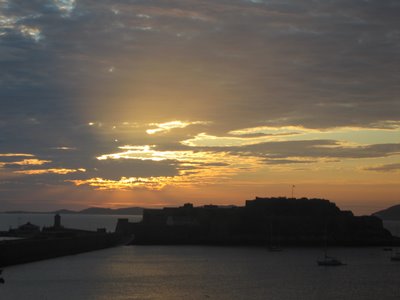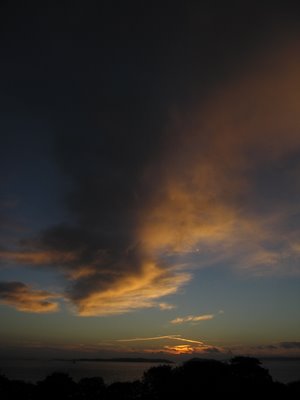
Sunday, September 24, 2006
Thursday, September 21, 2006
Our last best mystery

Inspired by
Mister Tumnus' blog the other day I have been thinking about our last and best mystery, and I have decided that the eucharist is the real presence where the veil comes down; the mystery where the balance between light and darkness is apparent.
ps, wouldn't it be great if jesus really looked like that - i mean look at those feet - and what is that waist-coat doing?
Monday, September 18, 2006
Saturday, September 16, 2006
Drink from the cup...

"Bring on the wonder, bring on the song, i pushed you down deep in my soul for too long."
susan enan is a secret about to be shared with the world...find some space, sit quietly and listen.
Friday, September 15, 2006
Thursday, September 14, 2006
Rain on...

Cary blogged this a while back now and just sent it to me in an email and it is my humble opinion that it is more than good enough for todays blog...as she said in her mail, very ikon and painfully beautiful
I'm the hunter who's killed by his dog
I'm the statue burnt down into lead
I'm the problem you don't want to solve
I'm the lover who dies in his bed
So rain on the pretty ones
Your useless lives don't speak to us
Rain on the pretty ones
You leave no footprints in the dust
Adventurous you used to be
But now you seem so dead to me
I'm the doctor with a needle in his arm
I'm the cartoon that makes you feel sad
I'm the secret that everyone has
I'm the cancer that never turns black
So rain on the pretty ones
Your useless lives don't speak to us
Rain on the pretty ones
You leave no footprints in the dust
Adventurous you used to be
But now you seem so dead to me
I'm the actor who's scared to perform
I'm the sunshine that hides in the clouds
I'm the father that couldn't be found
I'm the cuckoo that never flew south
I'm the Christian that cannot forgive
I'm the dreamer who jumps off the bridge
I'm the sinner who hates how he lives
I'm the liar who gets what he gives
(Ed Harcourt)
Wednesday, September 13, 2006
Masturbatory Worship and the Torah According to Gonzo
Out of repsect for 9/11 and James Dean I have held off posting this until now. Anyone who knows me knows that I loathe the kind of worship that says it's all about 'Him' but in truth is all about me me me me me me. I call it Jesus Wank, because i find it loathsome and offensive - I mean God is my father and Jesus my saviour - they are not my boyfriends!
So when a friend sent me this link I nearly pissed my pants. Take a look and listen, it's fantastic!
It's All About ME ME ME ME ME
and talking of causing a stir, my good brother in alms Rabbi Niles has just written the "world of gonzo," it is 'rife with indignation, agitation, cynicism and a "biting urge to revolt," this book delivers such a soulful commentary that it could just as easily be called "Judaism Unplugged." Like musicians who return to the roots of their profession and play without electronica,
it is 'rife with indignation, agitation, cynicism and a "biting urge to revolt," this book delivers such a soulful commentary that it could just as easily be called "Judaism Unplugged." Like musicians who return to the roots of their profession and play without electronica, 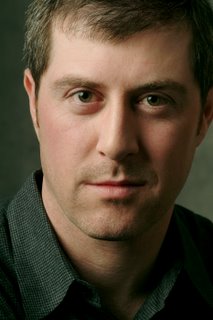 Rabbi Goldstein, founding rabbi of the New Shul in Manhattan, reminds readers—whether they are new seekers or lapsed practitioners of Judaism—to confirm their knowledge of the "nuts and bolts" of their tradition before wistfully seeking the mystical. "Judaism, when presented in its best and most authentic light, doesn't coddle—it confronts," he says. Similarly, the rabbi pulls no punches, but manages to do so with the easy style of a coffeehouse conversation. Using a combination of Jewish history and personal anecdotes, he offers a wide range of alternative ways to explore Judaism individually or in small groups, if large congregations are not appealing. The extensive resource list that includes congregations, organizations and recommended reading promises to serve readers of all ages. With this edgy, funny, wise book, Goldstein may just have found a way to ensure the survival of the religion for another 6,000 years, - worth a look and maybe even a double purchase?? Every home should have them!
Rabbi Goldstein, founding rabbi of the New Shul in Manhattan, reminds readers—whether they are new seekers or lapsed practitioners of Judaism—to confirm their knowledge of the "nuts and bolts" of their tradition before wistfully seeking the mystical. "Judaism, when presented in its best and most authentic light, doesn't coddle—it confronts," he says. Similarly, the rabbi pulls no punches, but manages to do so with the easy style of a coffeehouse conversation. Using a combination of Jewish history and personal anecdotes, he offers a wide range of alternative ways to explore Judaism individually or in small groups, if large congregations are not appealing. The extensive resource list that includes congregations, organizations and recommended reading promises to serve readers of all ages. With this edgy, funny, wise book, Goldstein may just have found a way to ensure the survival of the religion for another 6,000 years, - worth a look and maybe even a double purchase?? Every home should have them!
So when a friend sent me this link I nearly pissed my pants. Take a look and listen, it's fantastic!
It's All About ME ME ME ME ME
and talking of causing a stir, my good brother in alms Rabbi Niles has just written the "world of gonzo,"
 it is 'rife with indignation, agitation, cynicism and a "biting urge to revolt," this book delivers such a soulful commentary that it could just as easily be called "Judaism Unplugged." Like musicians who return to the roots of their profession and play without electronica,
it is 'rife with indignation, agitation, cynicism and a "biting urge to revolt," this book delivers such a soulful commentary that it could just as easily be called "Judaism Unplugged." Like musicians who return to the roots of their profession and play without electronica,  Rabbi Goldstein, founding rabbi of the New Shul in Manhattan, reminds readers—whether they are new seekers or lapsed practitioners of Judaism—to confirm their knowledge of the "nuts and bolts" of their tradition before wistfully seeking the mystical. "Judaism, when presented in its best and most authentic light, doesn't coddle—it confronts," he says. Similarly, the rabbi pulls no punches, but manages to do so with the easy style of a coffeehouse conversation. Using a combination of Jewish history and personal anecdotes, he offers a wide range of alternative ways to explore Judaism individually or in small groups, if large congregations are not appealing. The extensive resource list that includes congregations, organizations and recommended reading promises to serve readers of all ages. With this edgy, funny, wise book, Goldstein may just have found a way to ensure the survival of the religion for another 6,000 years, - worth a look and maybe even a double purchase?? Every home should have them!
Rabbi Goldstein, founding rabbi of the New Shul in Manhattan, reminds readers—whether they are new seekers or lapsed practitioners of Judaism—to confirm their knowledge of the "nuts and bolts" of their tradition before wistfully seeking the mystical. "Judaism, when presented in its best and most authentic light, doesn't coddle—it confronts," he says. Similarly, the rabbi pulls no punches, but manages to do so with the easy style of a coffeehouse conversation. Using a combination of Jewish history and personal anecdotes, he offers a wide range of alternative ways to explore Judaism individually or in small groups, if large congregations are not appealing. The extensive resource list that includes congregations, organizations and recommended reading promises to serve readers of all ages. With this edgy, funny, wise book, Goldstein may just have found a way to ensure the survival of the religion for another 6,000 years, - worth a look and maybe even a double purchase?? Every home should have them!
Tuesday, September 12, 2006
Joy and Sorrow

Then a woman said, Speak to us of Joy and Sorrow
And he answered:
Your joy is your sorrow unmasked.
And the selfsame well from which your laughter rises was often times filled
with your tears.
And how else can it be?
The deeper that sorrow carves into your being, the more joy you can contain.
Is not the cup that holds your wine the very cup that was burned in the
potter's oven?
And is not the lute that soothes you spirit, the very wood that was hollowed
with knives?
When you are joyous,
look deep into your heart and you shall find
it is only that which has given you sorrow that is giving you joy.
When you are sorrowful
look again in your heart, and you shall see that in truth,
you are weeping for that which has been your delight.
Some of you say, "Joy is greater than sorrow," and others say, "Nay sorrow
is the greater."
But I say unto you, they are inseparable.
Together they come, and when one sits alone with you at you board, remember
that the other is asleep upon you bed.
Verily you are suspended like scales between you sorrow and your joy.
Only when you are empty are you at standstill and balanced.
When the treasure-keeper lifts you to weight his gold and his silver, needs
must your joy or your sorrow rise or fall.
(from "The Prophet" By Kahlil Gibran)
In memory of James Dean
he was 21 and murdered in town last saturday night in St. Peter Port
Friday, September 08, 2006
What's in a name?
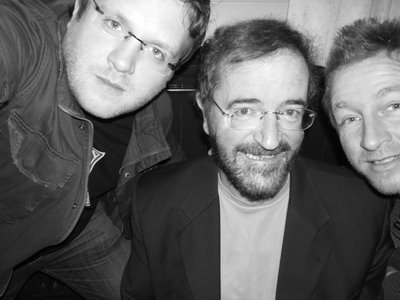
(The lovely Dr Higgins, Father O'Donohue and Me...guernsey? guernsey? tax, tax, guernsey)
The other day someone asked me where I came up with the name 'Harbour of Ourselves'. Well, it found its genesis whilst on retreat (titled 'When you enter into freedom, possibility comes to meet you'), with the good people of Zero28 in Belfast last autumn. There, we were led by the wonderful mystic John O'Donohue, a man whose speech is poetry itself. Never is a word wasted, its as if his heart and mind are so in tune with one another beauty can't help but drip from his lips.
One particular gem stood out. He said, "A way of coming back to the harbour of ourselves is to ask who we are. It takes a whole lifetime to take your place in your own life. Solitude is given to you to receive yourself. Maybe dear friends it's time to illuminate God in the mirror of our souls?"
So often we are on the run from ourselves - yet maybe if we were to sit down and travel to the heart of our own darkness and face our demons, we begin to see that they don't have the power over us we once thought. So just maybe we should harvest time by the appropriate framing of invocation and blessing...and find the harbour of ourselves.
ps, the pic was taken by none other than the good doctor himself - dear god, a man who can multi-task!
Wednesday, September 06, 2006
Tuesday, September 05, 2006
The Journey

The Journey
One day you finally knew
what you had to do, and began,
though the voices around you
kept shouting
their bad advice--
though the whole house
began to tremble
and you felt the old tug
at your ankles.
"Mend my life!"
each voice cried.
But you didn't stop.
You knew what you had to do,
though the wind pried
with its stiff fingers
at the very foundations,
though their melancholy
was terrible.
It was already late
enough, and a wild night,
and the road full of fallen
branches and stones.
But little by little,
as you left their voices behind,
the stars began to burn
through the sheets of clouds,
and there was a new voice
which you slowly
recognized as your own,
that kept you company
as you strode deeper and deeper
into the world,
determined to do
the only thing you could do--
determined to save
the only life you could save.
© Mary Oliver.
Sunday, September 03, 2006
Thought for the Day

...given to me by my buddy Rudi:
The truth is that our finest moments are most likely to occur when we are feeling deeply uncomfortable, unhappy, or unfulfilled. For it is only in such moments, propelled by our discomfort, that we are likely to step out of our ruts and start searching for different ways, truer answers, or more beautiful, promising potentialities
...wise words from one so hung over
Saturday, September 02, 2006
The Peculiar People of Greenbelt
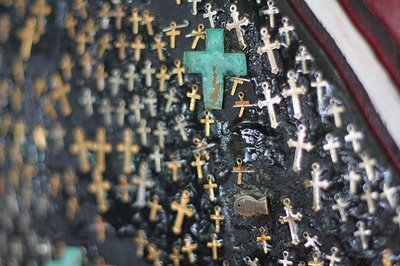
My final thoughts about Greenbelt 06 revolve around Dave Andrews talk concerning the 'Sermon on the Mount. 'We can't change anybody but ourselves' was his soundbite and his seminar explored how we can practise the be-attitudes and be the change we want to see in the world.
I have read these words of Christ every day since I came home - I had forgotten how subversive Jesus was
Blessed are the poor in spirit,
For theirs is the kingdom of heaven.
Blessed are those who mourn,
For they shall be comforted.
Blessed are the meek,
For they shall inherit the earth.
Blessed are those who hunger and thirst for righteousness,
For they shall be filled.
Blessed are the merciful,
For they shall obtain mercy.
Blessed are the pure in heart,
For they shall see God.
Blessed are the peacemakers,
For they shall be called sons of God.
Blessed are those who are persecuted for righteousness' sake,
For theirs is the kingdom of heaven.
Blessed are you when they revile and persecute you, and say all kinds of evil against you falsely for My sake. Rejoice and be exceedingly glad, for great is your reward in heaven, for so they persecuted the prophets who were before you.
For some reason I haven't been able to get two people out of my head, Mike Yac, who observed that the truth might indeed set you free, but it also makes you 'odd', and Dietrich Bonhoeffer, who spoke of Christians as 'peculiar people'.
I meet too many people who find church a prisoner of rather than a liberator of culture. Martin Wroe prudently said of Mike Yaconelli, that he was a cultural rather than political radical, which is where he and Bonhoeffer differ. For me Yac offered much more than a cultural/theological soundbite. With Mike Yaconelli theory became practice, and truth took on a life of its own, which is where he and Bonhoeffer dovetail beautifully. Bonhoeffer during the ‘Germanizing’ (something he opposed by establishing the ‘Confessing Community’) of the church in the 1930’s understood that Christianity had to address the centre of life from within the less popular religious margins. I believe its fair to say that the kind of purification Hitler was demanding created somewhat of a discord between that which Bonhoeffer believed was an accurate reflection of the community of faith described by Christ.
Whether we like it or not, the community of Greenbelt are, as a people, very odd indeed. Bonhoeffer described those like us as peculiar. And maybe that has something to do with the fact that so many of us struggle to find a spiritual home, a community that allows us to be real about our messy lives without the worry of dogmatic peers watching and judging our every move.
Maybe it’s because we follow the inner voice rather than run with those voices that seem to make faith trendy or safe and even worse easy? I remember Mike Riddell saying to me once that his experience of life had led him to the conclusion that Christians who are unwilling to look outside the box are, as a rule, the most dysfunctional people around. There’s a very important lesson here. And that is the difference between someone who is dysfunctional and someone who is odd or peculiar. For us to understand this we need to unpack further Bonhoeffer’s peculiar people.
He begins to describe what will mark (what kind of behavior and character we should expect) this odd kind of person in is most famous work, The Cost of Discipleship. A book that, whilst being slightly academic in language and style, is both a thorough account and compelling interpretation of the Sermon on the Mount. Funny isn’t it how Jesus chose to share what many feel is the heart of his teaching, not in the Synagogue but on a mountainside – in the wilderness if you like to the outsiders – the peculiar people (Though if you read Luke’s account the Beatitudes they are not on a mountain at all – what’s that all about?). I suggest a twenty-minute recess at this point to pour a glass of wine, put on John Coltrane quietly and reflect on why…
Bonhoeffer's major concern is something he describes as cheap grace. He suggests that grace has become so watered down that it no longer resembles the grace of the New Testament, the costly grace of Jesus. In using the expression costly grace, Bonhoeffer is alluding to the grace that has brought pandemonium into the world by turning it upside down – it’s something Philip Yancey describes as ‘truly our last best word. It contains the essence of the gospel as a drop of water can contain the image of the sun’ , or as U2 suggest:
‘Grace, she takes the blame
She covers the shame
Removes the stain…
What once was hurt
What once was friction
What left a mark no longer stings
Because Grace makes beauty out of ugly things
Grace finds beauty in everything
Grace finds goodness in everything’
In short, cheap grace is the intellectual consent to a doctrine without a real transformation in the life of the spiritual refugee. Real grace, in Bonhoeffer's assessment, is a grace that will cost a person their life. It is the grace made precious by the life of Christ that was given to acquire humankind’s deliverance and purpose. He suggests that cheap grace arose out of man's desire to be saved, but to do so without becoming a disciple that is willing to offer their life as a sacrifice for others. The doctrinal system of the church with its lists of behavioral codes becomes a substitute for the Living Christ, and this cheapens the meaning of discipleship.
The true believer must resist cheap grace and enter the life of active discipleship, and by that I mean more (and I’d wager my house Bonehoeffer would agree) than quiet times and the monthly prayer meeting. Faith can no longer mean sitting still and waiting for the Christian equivalent of nirvana. Christians must wake up and follow Jesus into the margins (wilderness even) of life. Bonhoeffer puts particular importance on the beatitudes for understanding how we practically live out an incarnate life in this foreign land, because within this teaching of Jesus we find an extraordinary list of qualities that actually do make us seem (to the majority) slightly odd or even, shall we say, peculiar.
Firstly there’s the poor in spirit. What’s so peculiar about them you may ask? Well, the truth is they have accepted the loss of ‘all things bright and beautiful’, you know, attributes like prestige, wealth, status etc. Most importantly though they accept the loss of self, (and we must remember the context of which the original crowd heard this and note the difference between that and our own culture) so allowing a more authentic following of the Carpenter from Nazareth. Those who mourn are those who try to live without the peace and prosperity of this world. Mourning is the conscious rejection of celebrating in what the world celebrates in, and so finding purpose and fulfillment in the life offered by the person of Jesus Christ. And whilst we’re alluding to the landscape of life in all its fullness, I’d like to (just as my grandma used to) put my two penneth in as to what I think it actually means.
Theological band-aids are fast becoming the bane of my life; I loathe them with a passion. What am I ranting about? Well, the kind of nonsense that for too long now I have heard from the archaic halls of Christendom, that if you come to Jesus everything in life will be a bed of roses. Nothing I believe could be further from the truth. Now I know that Jesus brings, and is ‘Good News’, but that to be blunt is only half the story. As John Bell says, ‘those who wish to know the bliss of shouting “Hallelujah” need to know the yearning of those who cry “How long?”’
Somewhere between heaven and hell lies our suffering world. When T.S. Elliot wrote about our inability to bear much reality, he could scarcely have imagined the truth his words would hold for subsequent generations. What do we do when the world hurts too much? How do we live when we become so numb we can’t feel anything anymore, when we feel dead, lost or trapped? Much of what passes for spirituality is from a perspective that is clean and comforting – seven rules for this, twelve steps for that – and in many respects our understanding of a full and successful spiritual life is governed by shadows making way for light, and ambiguity for clarity.
Yet most people would agree that life is difficult. Many people I meet are, in some way, broken on the wheels of living. Many parts of their life (particularly faith) are messy and uncontrolled, and what I want to suggest is that maybe this enables us to see and experience the spiritual – to meet with God where the finite confronts the infinite – with more authenticity. Just maybe God is as present in the darkness as in the light. Freud used to say that people have faith because of a desire for ‘wish-fulfilment’. Marx went as far to say that religious faith ‘is nothing more than narcotic’. What I would propose is that if God is really omnipresent, if God really is to be found everywhere – then surely God is very much present in the muck and mire of this world – and that, I believe, is very good news.
Augustine once said that, ‘everywhere a great joy is preceded by a great suffering’. He understood that by depriving some senses others were heightened, and that our spiritual experience is nourished best in the rough country of life. It is important to remember that isolation from pain may also dull the experience of pleasure. Faith in God offers no insurance against tragedy, and I lament that we don’t hear this enough from our communities of faith. My experience as I use a bar stool as a pulpit and a Guinness as a sacrament, is that most people are of the opinion that what the Church actually communicates is, ‘come to Jesus and all will be well’. Nothing, I believe, could be further from the truth, being a Christian complicates the matter even further.
Ultimately when Jesus is faced with personal suffering, he reacts in much the same way we do: with dread and fear (Luke 22: 39-46). In reality we are slow to embrace the broken of this world, or enter and walk the shattered avenues of those crippled with suffering and heartache – those places of extremes, of solitude, where we enter a mysterious compact with our neighbours. Our response to suffering depends largely on the outcome of our struggle in those frontiers.
I am conscious that our job is not to bring in the kingdom but bear witness to it. We need to rediscover the man of sorrows, where evil, pain and suffering are nourished by tears; that place where compassion becomes a signpost pointing on beyond itself. A deciding factor in my own decision to follow ‘The Carpenter’ was that he is the God who suffers with, and for me. And for those who are imprisoned, shipwrecked, or just broken on the wheels of living, just maybe we need to embrace that brokenness, and understand that some things just can’t be fixed this side of some much better place. Ok, rant over, back to the beatitudes.
Bonhoeffer states that the meek are those who do not speak up for their own rights. They continually give up their rights and themselves to follow the call of Christ first, and in consequence to the service of others. Likewise, those who ‘hunger and thirst after righteousness’ (though I believe righteousness is better understood as justice), also give up the expectation that they can ever turn this world into paradise by themselves, their hope is in the outworking of this particular teaching from the Mountain made manifest in the ordinary odd people of Christ as he inspires and dwells within.
The merciful have given up their own dignity and become devoted to others, helping the needy, the ill and the outcast. I remember hearing a very moving story a couple of years ago concerning Bono and his now late father Bob Hewson. Whilst on the European leg of the ‘Elevation Tour’ (just prior to 9/11) Bono’s father was close to passing on into the next life. Bono would travel back to Ireland most nights to visit his father – at times falling asleep at his bedside, next to him in the hospital.
When he passed away Bono commented that he’d prayed that his dad would die with dignity, but as he watched his father deteriorated he said that he realized that dignity was a ‘man made thing’ and that when we come into this world and leave it it’s all pretty messy – so he prayed instead that he would die with humility. A wise observation in my book, and one that that probably gave the Hewson family far more peace than any dignity could provide.
The pure in heart are no longer troubled by the call of this world, for they follow the call of the wild untamable spirit of God; they have resigned themselves to the call of Christ and His desires for their lives. The peacemakers can't bear the violence that is so often used to solve problems. This point would be of special significance for Bonhoeffer, who was writing on the eve of World War II. Those who live by the way of shalom maintain friendship where others would find a reason to break off a relationship. These individuals always see another option, a better way. Those who are persecuted for righteousness' sake are willing to suffer for the cause of Christ. Any and every just cause becomes their cause because it is part of the overall work of Christ. Suffering becomes the way to communion with God. To this list is added the final blessing given to those who are victimized for righteousness sake. These will (according to Bonhoeffer) receive a great reward in heaven and be likened to the prophets who also suffered.
Bonhoeffer's emphasis on our acceptance of suffering being a very real and allowed part of Christian spirituality is directly connected to the suffering of Christ. Theologian Jurgen Moltmann prophetically observed this as the year 2000 drew near, ‘it seemed that the “new” millennium was already old and ruinous.’ - recognising that the sense of life in the post-modern world is no longer shaped by the hubris of belief in progress, but rather in the sadness of shattered hopes. He concluded that, ‘Suffering can assail us with its ferocity, because the darkness from which it comes is so near.’
John O’Donohue describes suffering as the dark valley of broken belonging. Moreover he suggests that darkness is one of our closest companions because we were conceived and shaped in it. It could be said that because of this, something within us knows the darkness more deeply than it knows the light. Should we choose to ignore this, I fear we will only continue to feed the cancer of our malaise, and the church will become even more compartmentalised from society than it already is. As the psychologist Scott Peck suggests, ‘Compartmentalisation is easy. Integrity is painful. But without it there can be no wholeness. Integrity requires that we be fully open to the conflicting forces and ideas and stresses in life.’ Our job is surely about trying to bridge the two worlds we live in, between the ethereality of religion and the mess of everyday life. I believe that faith is more than a challenge. It is pain. For God’s reality is inextricably linked to God’s absence. This just might be, if we recollect the paschal mystery, the proof He exists at all. His absence is part illusory.
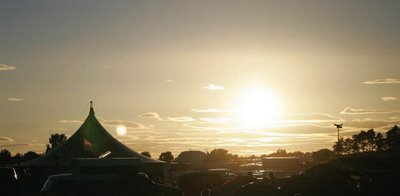
Thankfully though, just for a few days every August, God steps out of the shadows and allows a peculiar people a moment of tranfiguration...well, just maybe, and I am very grateful to Dave Andrews for taking me back to the Sermon on the Mount and kicking me out of my complacency
Friday, September 01, 2006
GB Highlights
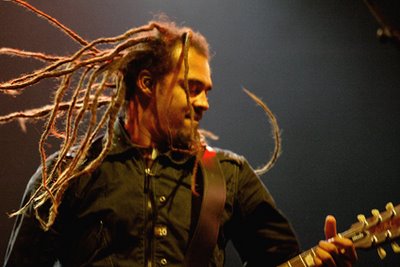
Having a beer with Jim Wallis and Dave Andrews in Pip's late night L5 circle, spending time with the children, introducing ex-street child Sikhumbuzo on main stage during the opening ceremony, being invited to eat tea with those provocative, deep and loving east belfasters, sampling organic beer, crying at the wonderful Martyn Joseph & Stewart Henderson's 'because we can', eating curry with the lovely John Bell or eating burritos with the sweet Steve Lawson and the good Dr are just some of the magical memories of GB '06...
But the pivotal moment arrived as the festival drew to a close. Unnerving without being intimidating he stands over 6ft 5 tall, his presence beguiling and strong, you kind of get the notion you are in the company of someone remarkable, someone who might just cause you to be different after your encounter...
Michael Franti walked on stage and blew us all away to a land of possibility with intoxicating 'songs of redemption'. In a mesmerising set he embodied the spirit of Greenbelt - even remarking that;
 "I sing my songs not to change to people's minds but to open them and Greenbelt is a mind-opening event..."
"I sing my songs not to change to people's minds but to open them and Greenbelt is a mind-opening event...""So many people here from different backgrounds all exploring faith and culture through the arts in harmony and unity – I’ve never been to another festival like it …"
In a recent interview he said, "Right now, people ask me, 'What can one person do to change what's going on with the world?' I don't know what one person can do except to connect with other people. In doing that, each of us play our roles," he says. "My role is as a storyteller and a songwriter. I'm somebody who is trying to keep the spirits of other people up, despite all the chaos and fear around us"
In the summer of 2004, Franti travelled with a group of friends to Iraq, the territories within the Palestinian Authority, and Israel. He took video cameras and a guitar with the intent of exploring the human cost of war. A compelling soundtrack, visual and musical montages, and Franti's intimate voiceovers make the film speak to the MTV, X, Y & Z generations, as well as the baby boomers. With its guerrilla style footage captured in active war zones, the documentary is unlike the many academic and politically driven pieces in the marketplace, instead offering the audience a sense of intimate travel and the opportunity to hear the voices of everyday people living, creating and surviving under the harsh conditions of war and occupation.

One thing I did notice as he played and then talked with anyone who wished to engage him, was that he had nothing on his feet. Evidently since 2000 he has been walking through life barefoot except, occasionally, for going on an airplane or into a restaurant when he wears flip-flops. Franti feels there is a division in the world between the consumer nations who buy shoes and the nations where people make shoes but can't afford them. So he decided to go for three days without shoes, and liked it ever since.
So as another thin place began to give up her fight, I was left with thought; Who could see heaven and not want to stay?
These fantastic pics were taken by the very talented Andy Stonehouse, © F8-infinity 2006
Subscribe to:
Posts (Atom)

